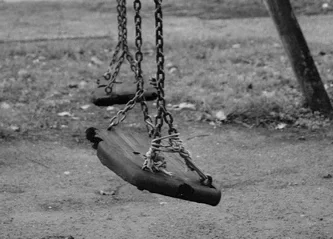“Let this mutilated world see what she did to you” A review of “Bread and Circus” by Ant Smith
"Bread and Circus" proves that time machines are scary. Are you sure you really want to go back there?
Romanticizing the nostalgic moments and demonizing the less warm memories is easy enough and perhaps it's best to stay there.
Otherwise what we will find may destabilize our myths and reconstruct our visions.
Yes. They were all terrible people, and he was the oh-so most wonderful person, and that was the perfect place for all of us, and she was never there for me! Of course. Easy and simple.
If that all falls apart what will we have left? A destabilizing spiritual reckoning and a confrontation with our material realities... who has time for that?
This facade keeps the meat on the grill at the cookouts, it keeps choir singing in unison, it sustains marriages and maintains order. It keeps the music playing and socio-political outrage increasingly selectional.
The U.S social conscious thrives (or suffers) through nostalgia, simplification and avoidance. A 90s sitcom, a hit single from 2002, and a food item off a dollar menu that actually costs a dollar helps reignite memories of the family desire to wave an American Flag, put on a burgundy "I have a dream" shirt with a matching Washington Redskins hat and head to the function.
Or maybe mid to late 90s spikes in gun violence, grotesque police assaults, and a terroism attack coupled with rampant and violent Islamophobia inspires memories of deep pessimism, isolation, and individualism.
Sometimes we thrived in times of suffering (many times through the sacrifice of others). Sometimes we suffer in times of "progress" and thriving (we were the sacrifices).
Those sentiments possibly all intertwine and create less than convenient storylines about who we and/or our families are.
Sometimes it's too messy to think about and so we don't. "Bread and Circus" does though.
It does the opposite of threatening to audit museums over their investment in telling the story of American Chattle Slavery. It does the opposite of mitigating the violence contained in the story of Western Colonialism through silly cartoons. It makes us contend with all that we are. It's a pillar of argument for reparation, truth and reconciliation, for transformative justice.
Memories of childhood love and warmth battle for space in my mind against the childhood traumas that crafted my defense mechanisms, my emotional spasms and my social dysfunctions. The love and warmth, the unsafety and isolation, often arose in the same settings, under the same roofs, in the same playgrounds, in the same classrooms.
I have learned valuable lessons from problematic teachers and been harmed by people that love me.
I have suffered while others played, and rejoiced in the ashes of others' struggles.
If you go into a time machine looking for the moments of joy, you should be very, very careful of the hell that upholds heaven. And if you go in looking to rectify irredeemable horror, talk about the smiles and laughter you noticed on the way.
As Airea Mattews writes in Ars Poetica 1979
"Cry, Boy, look that honest wound in the eye and you betta let this mutilated world see what she did to you."


